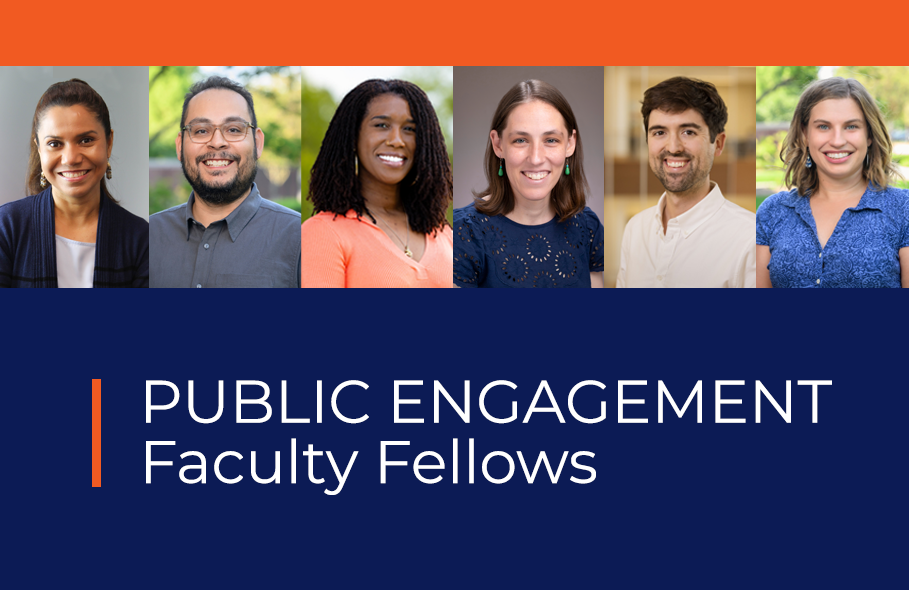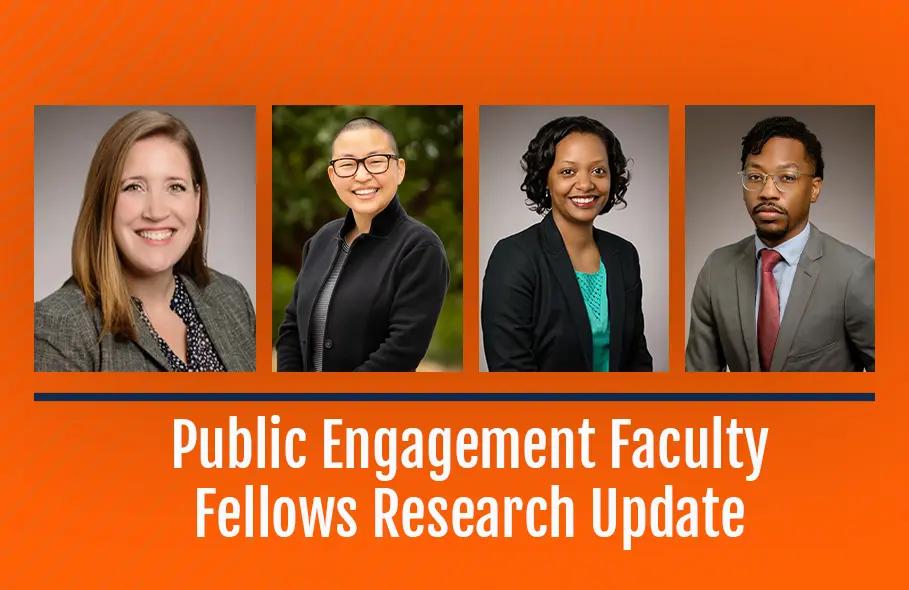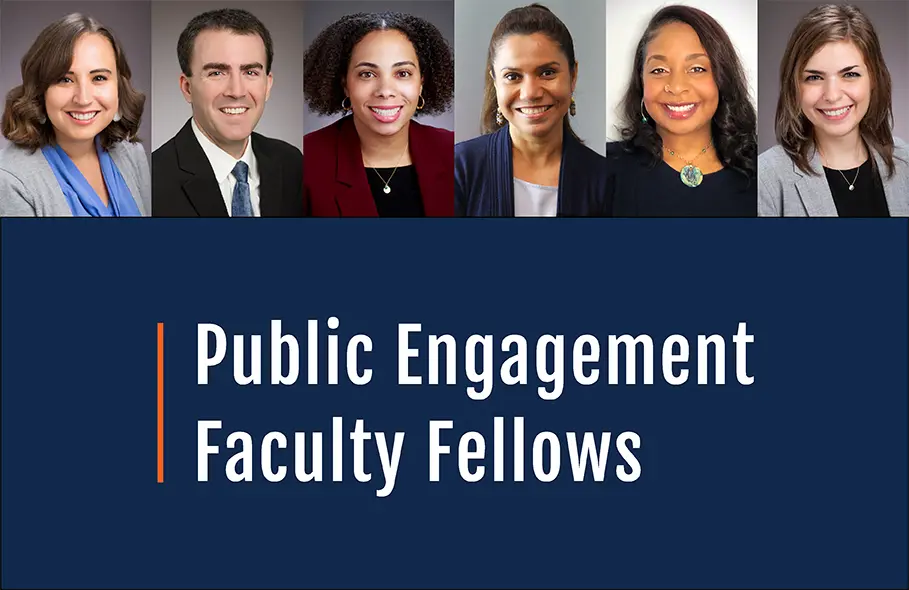2024-25 Public Engagement Faculty Fellows Cohort Announced
by Ashley Lawrence Pellegrini / Sep 19, 2024

Six faculty members will represent the College of Education as Public Engagement Faculty Fellows this year, focusing as a Research or Teaching Fellow. They will partner with local and national communities to improve understanding and practices in education.
Now in its third year, this cohort-based program enhances the ongoing community-engagement efforts of the College of Education. The program strengthens campus-community ties and gives educational partners (e.g. teachers, directors of local nonprofits) more influence in campus activities.
Fellows receive up to $6,500 to help fund their community-engaged research or teaching project.
“We are delighted to continue the Public Engagement Faculty Fellows Program and to include Teaching Fellows for the first time. This new cohort of fellows represents the College's commitment to addressing community priorities through teaching, and empowers Education students to address real-world needs,” says Emily Stone, director of public engagement.
Research Fellows
These faculty will work closely with educational partners to develop research studies that address social and civic issues, aligning with community priorities.
Giselle Martinez Negrette, Assistant Professor of Curriculum & Instruction
Martinez Negrette is working in Urbana School District dual language (DL) classrooms to explore how teachers mediate culture and how this mediation impacts teaching practices and social interactions between teachers and students.
“My goal is to create a space for authentic reciprocal collaboration where educators, as community partners, can use data collected in the classroom to engage in self-reflection and work with the research team to better understand the role of culture in their interactions and teaching practices,” says Martinez Negrette. “We hope to find practical ways to counteract pedagogical projects that may (re)produce inequities in education and society.”
Gabriel Rodriguez, Assistant Professor of Education Policy, Organization and Leadership
Rodriguez is partnering with Latinx educators from Highland Park High School to build upon existing efforts to improve Latinx students’ sense of belonging. The partnership entails working alongside educators involved in an after-school club for Latinx students to document how educators leverage their cultural and linguistic identities in their daily practice and develop additional programming to meet the needs of their students.
“By working together, it is my hope we can underscore the importance of after school spaces for Latinx students in demographically changing schools and the important need for additional resources to support their academic and social development,” says Rodriguez.
Stephanie Toliver, Assistant Professor of Curriculum & Instruction
Toliver co-designed her project to meet the needs of the young people who attend the Urbana Neighborhood Connections Center’s after-school program. The initiative will engage the youth in exploring their identities and envisioning equitable Black futures through creative writing, speculative design, and open discussions. The goal is to provide a platform for them to express their ideas and needs in hopes that we might better build spaces and curriculum that reflects their experiences, aspirations, and dreams
“In my dreams, this engagement opportunity will open portals to otherwise forms of literacy engagement with Black youth, forms that are artistic, creative, and imaginative,” says Toliver.
Teaching Fellows
Faculty will work closely with educational partners to modify existing courses to better address social and civic issues, aligning with community priorities.
Mari Altshuler, Teaching Assistant Professor of Curriculum & Instruction
Altshuler is aiming to support a local school community and bring math teaching and learning to life for the College's elementary education students. Each class section of CI 430/432 will partner with a classroom at Northview Elementary in Rantoul. Education students will learn about the school's math curriculum, develop engaging math activities for the classrooms, and get feedback on their work from the partner teachers.
“This project is a win for everyone involved. Our Education students get to learn from experienced teachers and from seeing elementary school students engage with the math activities they develop. Our partner classrooms benefit from the fresh and creative ideas that our College's students bring to the table,” says Altshuler.
Chris Napolitano, Associate Professor of Educational Psychology
Napolitano has proposed a new course titled "Research in Action" that integrates adolescent development, research design, and quantitative psychological measurement through a semester-long service learning partnership with a local youth-serving organization. The course aims to empower students to become changemakers in their communities by providing them with the tools to conduct impactful research. By collaborating with organizations, students will gain hands-on experience designing, conducting, and analyzing research to address real-world challenges faced by youth.
“I believe that by equipping students with the knowledge and skills to conduct research that directly benefits local youth, we can inspire a new generation of changemakers who are committed to social justice and community engagement,” says Napolitano.
Emily Tarconish, Teaching Assistant Professor of Special Education
Tarconish is partnering with Community Choices, a local non-profit that works to support individuals with disabilities to maintain independence, to develop a business accessibility evaluation based on the feedback of disabled community members. Results of the evaluation will be entered into a searchable database, hosted by Experience Champaign Urbana.
“This project will give pre-service teachers the opportunity to think critically about what it means for spaces to be 'accessible' and how that term has such different meanings for individuals, as well as students with disabilities,” says Tarconish. “I hope it helps them to think critically about the accessibility of the community spaces in which their students live and how as future educators, they can build learning environments that are accessible to all learners.”

